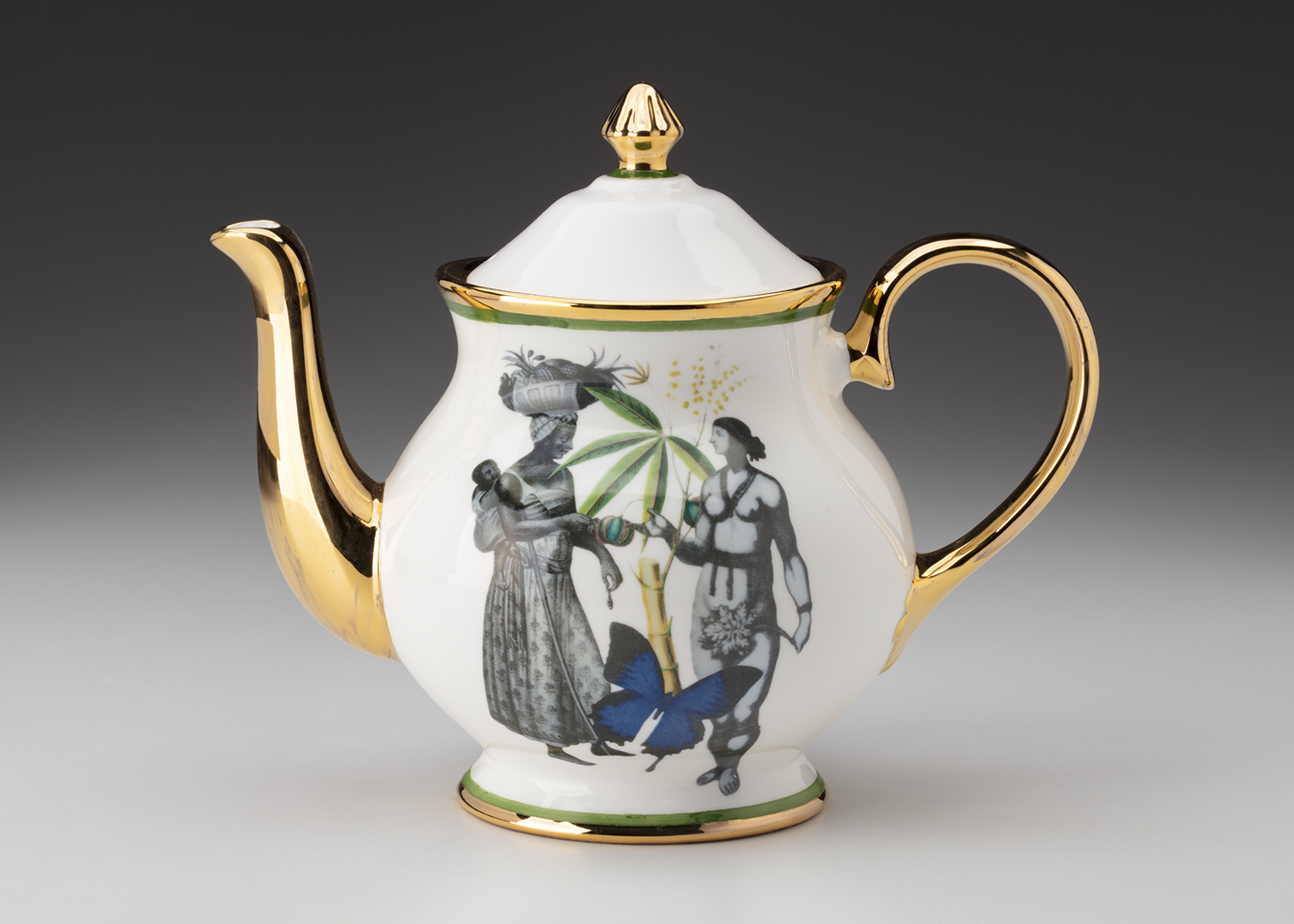Keeper of All The Secrets (Tea Service)
edition of 3
2023
digital print on commercial porcelain
various dimensions
KEEPER OF ALL THE SECRETS (TEA SERVICE)
Limited Edition Set | Edition of 3
KEEPER OF ALL THE SECRETS (TEXTILE)
ABOUT
More on Jacqueline Bishop HERE
Because of her knowledge of the properties of the plants and flowers on the island(s) of the Caribbean and her ability to move about the island going to and from market, among the duties the market woman had to take on was the ability to regulate women’s menstrual cycles. Consequently, if a woman missed her cycle and feared that she had an unwanted pregnancy, she would seek out a market woman to purchase the necessary plants to bring on a reluctant period. But the market woman had to be secretive in what she was doing for during the period of slavery, the children that enslaved women had in their very bodies did not belong to them. Rather they belonged to the people who owned them, and it was punishable by death for enslaved women to seek to destroy their owner’s property i.e., unborn slave children. Abortion remains contested to this day as the recent Supreme Court ruling in the United States demonstrates and even on the island of Jamaica abortion remains illegal. Consequently, trafficking in plants that could aid in abortion was illegal for both the market woman and the woman seeking to end an unwanted pregnancy. In this way the market woman became the “The Keeper of All the Secrets”: She had to be secretive enough to protect herself as well as the girls and women she was helping.
-Jacqueline Bishop
ON “KEEPER OF ALL THE SECRETS”
What I have done in this body of work is trace this history of the market woman’s use of abortifacients from the period of slavery until today in a tea set. If a viewer looks closely at the imagery on the tea set, they will see that I have placed my work in conversation with the earliest paintings that were done of Jamaica which shows the market woman as a figure with a basket on her head, or on the dusty streets of Kingston, her child at her side, sitting and selling. One of the most meaningful images for me is a meeting between a market woman and an indigenous woman demonstrating an exchange of botanical and other information and knowledge between both women. Not only is that image recreated on one of the largest pieces in the tea set, but I have had the piece created on West Indian Sea Island Cotton, one of the most refined cottons in the world to reinforce the themes of the work. The indigenous Taino of the island of Jamaica were master cotton weavers, a skill passed on to the enslaved; as well the cotton flower was an important abortifacient, and this is perhaps knowledge passed on by indigenous women to enslaved women. Intertwined on the tea set with the market women are various abortifacient plants along with sugar used to make the drink that would engender the abortions, but sugar also being an integral part of the history of enslavement. All of this is showcased in a tea set outlined in gold making the point that enslavement, colonialism, slavery gave rise to luxury commodities enjoyed and enjoined in Europe as is this porcelain tea set.
-Jacqueline Bishop















